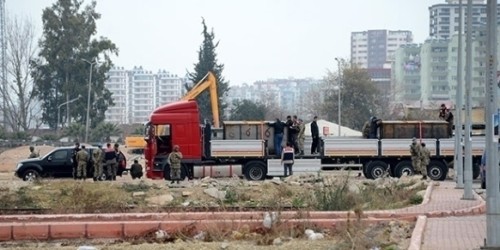Controversy over covert arms supplies from Turkey to Syria’s insurgents has been stoked by a threat by Ankara against social media outlets such as Twitter and Facebook.
Turkish authorities have warned websites not to publish alleged documents related to Syrian-bound trucks, belonging to the Turkish intelligence agency MIT, that were stopped by a prosecutor in January 2014.
Twitter and Facebook, which have been threatened with a ban by Turkish President Recep Tayyip Erdoğan, removed the targeted content on Wednesday.
The leaked military documents indicated that the arms convoy was personally authorized by Erdoğan, who was then Prime Minister. Trying to prevent search and seizure of the trucks by the prosecutor’s order, Adana Province Governor Hüseyin Avni Coş said, “The trucks are moving under the orders of the Prime Minister [Erdoğan] and he would never allow any interference into these trucks, even if that costs him his life.”
Governor Coş also said Erdoğan told him that the Government would push a new law through Parliament allowing MİT to carry arms legally. Shortly after the raids, a bill was approved giving MİT staff broader immunities from legal prosecution.
Erdoğan described the search of the trucks as “treason” and claimed that they were only transporting humanitarian aid to Turkmens in Syria. However, according to the leaked documents, the military believed the cargo, including mortars firing mechanisms, and metal casings, was destined for the Islamist faction Jabhat al-Nusra.
In February 2014, a Turkish court banned publication of any news about the halting of the Syria-bound trucks. A Government decree in March reinforced the ban, citing a law authorising media restrictions “in cases obviously required by national security or when public order is very likely to be broken”.
The Turkish Government blocked access to Twitter on March 20, 2014, hours after then-Prime Minister Erdoğan vowed to close down the social media platform. YouTube was banned a week later after it hosted claimed audio of a top-secret Government meeting on Syria discussing a possible false-flag operation in Syria which would justify Turkish military intervention.
The Constitutional Court unblocked Twitter on April 2, 2014, and YouTube on May 29, 2014, citing freedom of expression.

